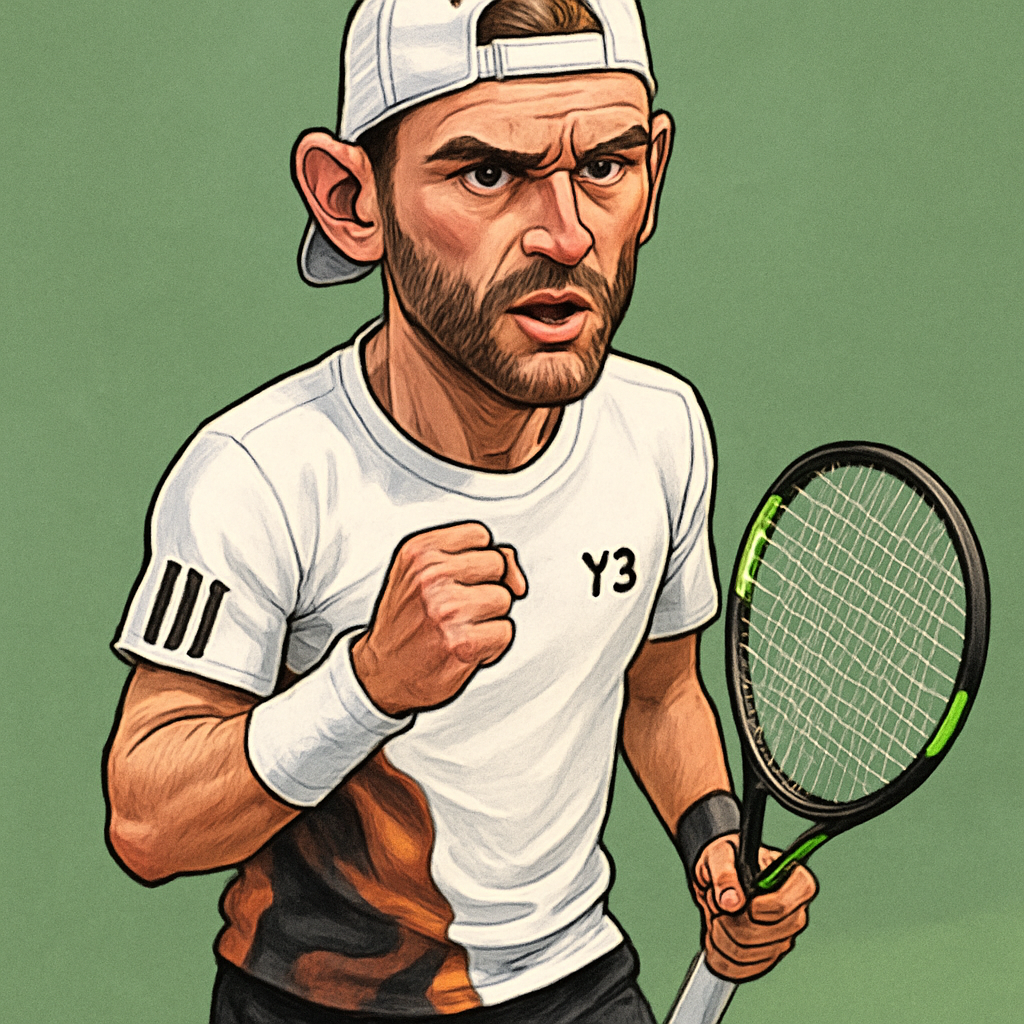NEW YORK — In a match defined more by grit than grace, British qualifier Jacob Fearnley secured a monumental first Grand Slam main draw victory at the US Open, defeating world No. 87 Alejandro Moro Canas 7-5, 6-4, 4-6, 6-4. The win, however, was overshadowed by a staggering statistic: Fearnley committed a jaw-dropping 18 double faults, a number that would typically spell certain defeat at the highest level of the sport.
The 22-year-old Scot, who captured national attention with a spirited performance against Novak Djokovic at Wimbledon just months prior, admitted to feeling the immense pressure of the moment on Court 4 at Flushing Meadows. "I was incredibly nervous out there," Fearnley confessed in his post-match press conference. "It’s my first US Open, first time in the main draw of a major away from Wimbledon. The serve is usually a weapon for me, but today it completely abandoned me. I’m just relieved to have found a way through."
Despite the serving yips that plagued him throughout the two-hour and forty-five-minute battle, Fearnley’s all-court game and fighting spirit proved the difference. He managed to hit 45 winners and demonstrated a deft touch at the net, winning 75% of points when he ventured forward. This aggressive approach was necessary to counteract the constant pressure his faulty serve placed on his own service games.
A Rollercoaster of a Service Motion
The match was a tense affair, with Fearnley’s service games becoming must-watch drama. The first set alone featured six double faults, yet he somehow clung on to break Moro Canas late to seize the initiative. The second set followed a similar pattern, with the British player fighting off multiple break points with gutsy groundstrokes after yet another double fault had put him in a perilous position.
The third set saw a dip in Fearnley’s level, as the cumulative stress of the service struggles finally allowed the consistent Spaniard to capitalize and claw a set back. Entering the fourth set, the momentum seemed to have swung decisively against the qualifier. "There were moments where I thought, 'Is this just not going to be my day?'" he later admitted.
Finding a Way to Win
What impressed observers most was Fearnley’s mental resilience. Instead of capitulating, he dug deep, relying on the other facets of his game to weather the storm. His tactical adjustments were key to navigating the crisis:
- First Serve Percentage: After a disastrous start, he began to focus on simply landing his first serve, even at the expense of power, to avoid the dreaded second-serve scenario.
- Aggressive Returning: He redoubled his efforts on return games, breaking Moro Canas seven times throughout the match to counteract his own service breaks.
- Net Play: He used his strong volleying skills to shorten points and apply pressure on his opponent.
This multifaceted approach allowed him to secure a crucial break in the seventh game of the fourth set. Serving for the match at 5-4, the nerves returned, culminating in a heart-stopping final point that ended with a Moro Canas forehand sailing long, sealing a hard-fought and unforgettable victory for Fearnley.
The Path to Flushing Meadows
Fearnley’s journey to this moment is a testament to his rapid development. After an illustrious collegiate career at Texas Christian University (TCU), where he won the NCAA doubles title and was a singles All-American, he turned professional this summer. His run through qualifying at the US Open, where he didn’t drop a set, showcased the form that made him a dangerous floater in the draw.
His coach, former ATP pro Louis Cayer, was courtside and acknowledged the serving issues but praised his charge’s fortitude. "Tennis is not a perfect game. Some days one part of your game disappears. The mark of a great competitor is winning on those days. Jacob did that today. We will work on the serve, but for now, we celebrate the fight."
Looking Ahead: A Daunting Challenge
The reward for his victory is a monumental second-round challenge: a clash with the No. 2 seed and defending champion, Novak Djokovic. It will be a rematch of their meeting at Wimbledon, where Fearnley won admiration for taking a set off the 24-time major winner. "It’s an incredible opportunity to play one of the greatest ever again on such a big stage," Fearnley said, already looking ahead. "I’ll need to serve a lot better, that’s for sure. But I’ll go out there, enjoy the moment, and see what happens."
For now, Jacob Fearnley’s name is in the history books. His victory serves as a powerful reminder that in tennis, as in life, perfection is not a prerequisite for success. Sometimes, heart, hustle, and a refusal to quit are enough to overcome even the most glaring of weaknesses, turning a nervous day into a triumphant one on the sport’s biggest stages.

